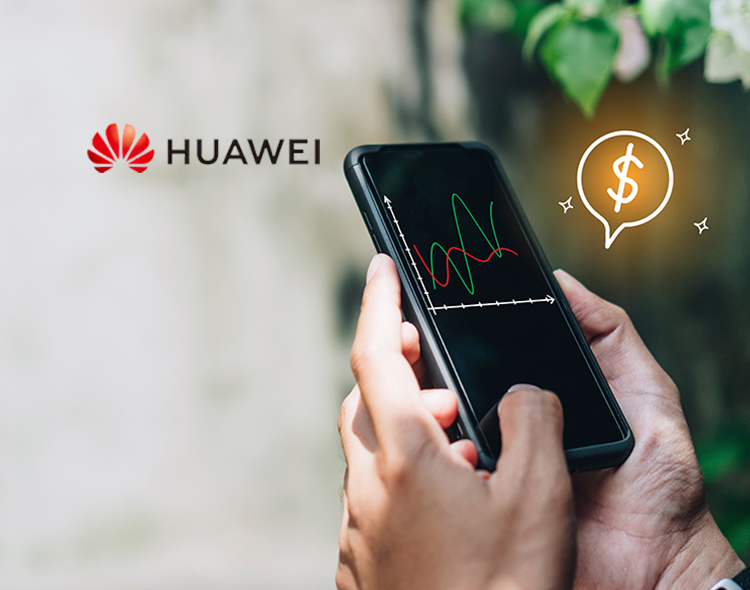At Huawei Connect 2021, experts from IDC, Tolly, Bank of China, and Huawei congregated to discuss the future of storage networks. It was at the session that all parties reached a conclusion that NVMe over Fabric is the inevitable choice in the all-flash era. More importantly, Huawei proposed the Lossless Ethernet Storage Network Solution NoF+, otherwise known as NoF+ Solution, an industry-changing innovation that is designed to unlock the potential of all-flash storage. Zhang Jidong, a storage network architect at Bank of China, noted how because the solution supports long-distance lossless transmission of 200 km over 100GE links, slashing 90% cross-DC links compared to FC, it’s a perfect option for intra-city active-active deployments.
With financial services increasing rapidly, volumes are soaring, which requires high data concurrency. In addition, banks everywhere now need to provide 24/7 services, which presents unprecedented challenges to transaction latency and reliability. The banking industry has always needed high reliability infrastructure to prevent huge economic losses caused by data loss and service disruption. In fact, statistics show that, on average, financial data loss or service disruption in the industry run as high as $6.48 million per hour. In such a demanding climate, there is a trend to build an all-flash data center that is reliable, green, and energy-efficient, improving storage performance 100-fold compared to conventional data center deployments.
Read More: Kyriba Unlocks Access to $15 Trillion Payment Network with Launch of Open API Platform
The all-flash era acted as a catalyst for new protocol developments, from SCSI to NVMe, and gradually to end-to-end NVMe supporting three types of networks (FC, Remote Direct Memory Access over Converged Ethernet, or RoCE, and TCP). Storage networks require high levels of reliability, performance, and ease of use. Zhang Jidong said, “Traditional FC storage networks do not match all-flash NVMe in terms of parallel high-throughput reads/writes, and the major reasons for this is FC networks provide insufficient bandwidth and poor scalability.”

NVMe over RoCE has been trending in the all-flash data center era. However, it is prone to issues of packet loss and usability. Huawei NoF+ Solution was released in response to the all-flash and all-IP trends of data center storage. In terms of performance, packet loss is common on a traditional Ethernet network, where a packet loss of 0.1% decreases the network throughput by 50%. By contrast, the Huawei NoF+ Solution adopts an iLossless algorithm to achieve zero packet loss with 100% storage network throughput, and improves IOPS by 87% and latency by 42% compared to FC. The NoF+ Solution adopts the next-gen OceanStor Dorado all-flash storage and the CloudEngine DC storage network switch to yield higher performance and reliability, and easier O&M. It was these benefits that attracted Bank of China to commercially deploy the solution in their environments.
Kevin Tolly, the Founder & CEO of Tolly, echoed the thoughts of Zhang Jidong and said, “Recently, Tolly was commissioned to run performance tests comparing the Huawei NoF+ Solution which is one NVMe over RoCE solution, versus an NVMe over FC solution. From the test results, the Huawei NoF+ Solution improved the storage performance with up to 93% higher IOPS and 49% lower latency than the FC solution. In high availability tests, the Huawei NoF+ Solution demonstrated less-than-1-second end-to-end service failover with link and storage module failures. I’m not surprised that the Huawei NoF+ Solution received the Best of Show Award at Interop and is favored by customers.”
International Data Corporation (IDC) believes that the future is heading with NVMe over Fabrics. There are four main reasons:
- Dropping prices of flash media will accelerate NVMe-oF adoption
- The move to NVMe/PCIe will accelerate end-to-end NVMe
- Emerging workloads will drive growth of NVMe-oF, especially in terms of business application, engineering, and techniques
- NVMe-oF will enable cross-domain data management
IDC believes that all-flash data centers are almost here, and will certainly come around in the next few years. That will be driven by more capable storage systems, like Huawei NoF+. The solution implements end-to-end data acceleration in storage scenarios by leveraging OceanStor Dorado all-flash storage systems and CloudEngine data center storage network switches. It takes full advantage of the million-level IOPS of all-flash storage and meets the petabyte-level development requirements of the financial industry.
Read More: LMN Pay Launches to Create Better Payment Processing System for Landscapers
[To share your insights with us, please write to sghosh@martechseries.com ]
